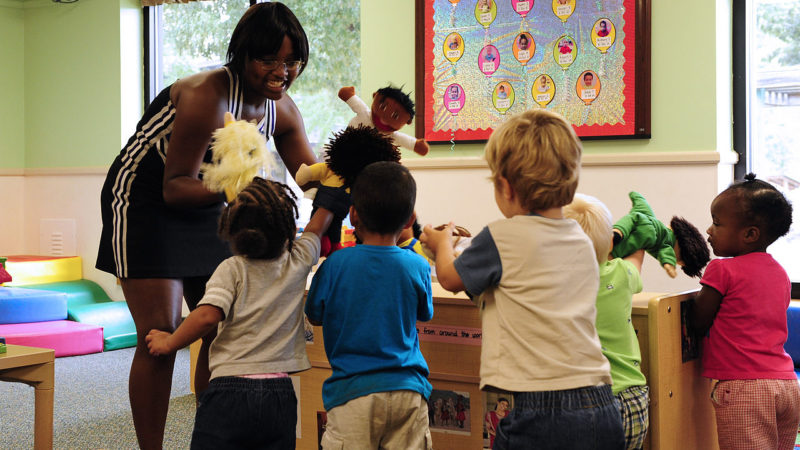'Childcare holds the power to tackle disadvantage by enabling parents to work and boosting children’s outcomes. But this opportunity is being missed and new government investment risks entrenching rather than changing an unequal system,' says the JRF.

In the Spring Budget, the Chancellor Jeremy Hunt announced a ‘childcare revolution,’ introducing 30 hours of free childcare from the age of ninth months. While the announcement was broadly received as a positive step towards women’s rights, the Tories’ motives were called into question, namely that offering more childcare provision has been a long-touted policy of Labour, and the move was a bid to play well with the electorate.
Now the childcare reform is back in the spotlight, with charities warning that the government’s plans will trap disadvantaged children in the cycle of poverty.
The Joseph Rowntree Foundation (JRF) and the child welfare charity Coram have published a report on Britain’s childcare system and the proposed changes. The report reveals that the Conservatives’ £4bn plan to reform childcare will benefit middle-income families, while leaving disadvantaged children behind.
Under the current system, all children aged three to four are eligible for 30 hours of free childcare a week, provided their parents are working at least 16 hours a week. Free childcare is set to be expanded by the government to include children aged over 9 months. In only being valid to working families, the charities warn that the policy will result in non-working parents missing out. This is because the system assumes that parents who are not in work are able to look after their children. However, attending education early on is vital in helping youngsters prepare for school and consequently many vulnerable children are missing out on key developmental opportunities.
The charities are calling for a complete overhaul of the system, with targeted funding for disadvantaged children rather than it being thinly spread by expanding 30 free hours of free childcare to very young children. They are also calling for investment in the quality of childcare, including better pay for professionals and higher levels of qualifications. Additionally, the charities are asking the government to introduce a simple and affordable means-tested payment system for parents to ensure all children get equal access to early education.
Megan Jarvie, head of Coram’s family and childcare unit, warns that disadvantaged children are falling behind before they even start school. “A well-designed childcare system can be a key tool in tackling this disadvantage. But instead, families are stuck in poverty and children are missing out on early education that could better prepare them for school.
“We urgently need to rebalance the childcare and early years system to better serve the children who stand to benefit the most. We have set out a reformed system to better meet the needs of all families and children, and to level the playing field for disadvantaged children.”
The report shows that even if parents are in work, those on low incomes are less likely to take up free early education entitlement. This is because awareness of the benefit is lower in deprived areas. Furthermore, parents who don’t speak English as their first language are less likely to take up the free childcare provision.
“The childcare system we have now is failing disadvantaged children – parents don’t take up the services they are entitled to because, in doing so, they’d lose out financially. The only option many have is to reduce the hours they work in order to stop being penalised,” said Abby Jitendra, the principal policy advisor for care, family and relationships at the JRF.
Gabrielle Pickard-Whitehead is a contributing editor to Left Foot Forward
To reach hundreds of thousands of new readers we need to grow our donor base substantially.
That's why in 2024, we are seeking to generate 150 additional regular donors to support Left Foot Forward's work.
We still need another 117 people to donate to hit the target. You can help. Donate today.



